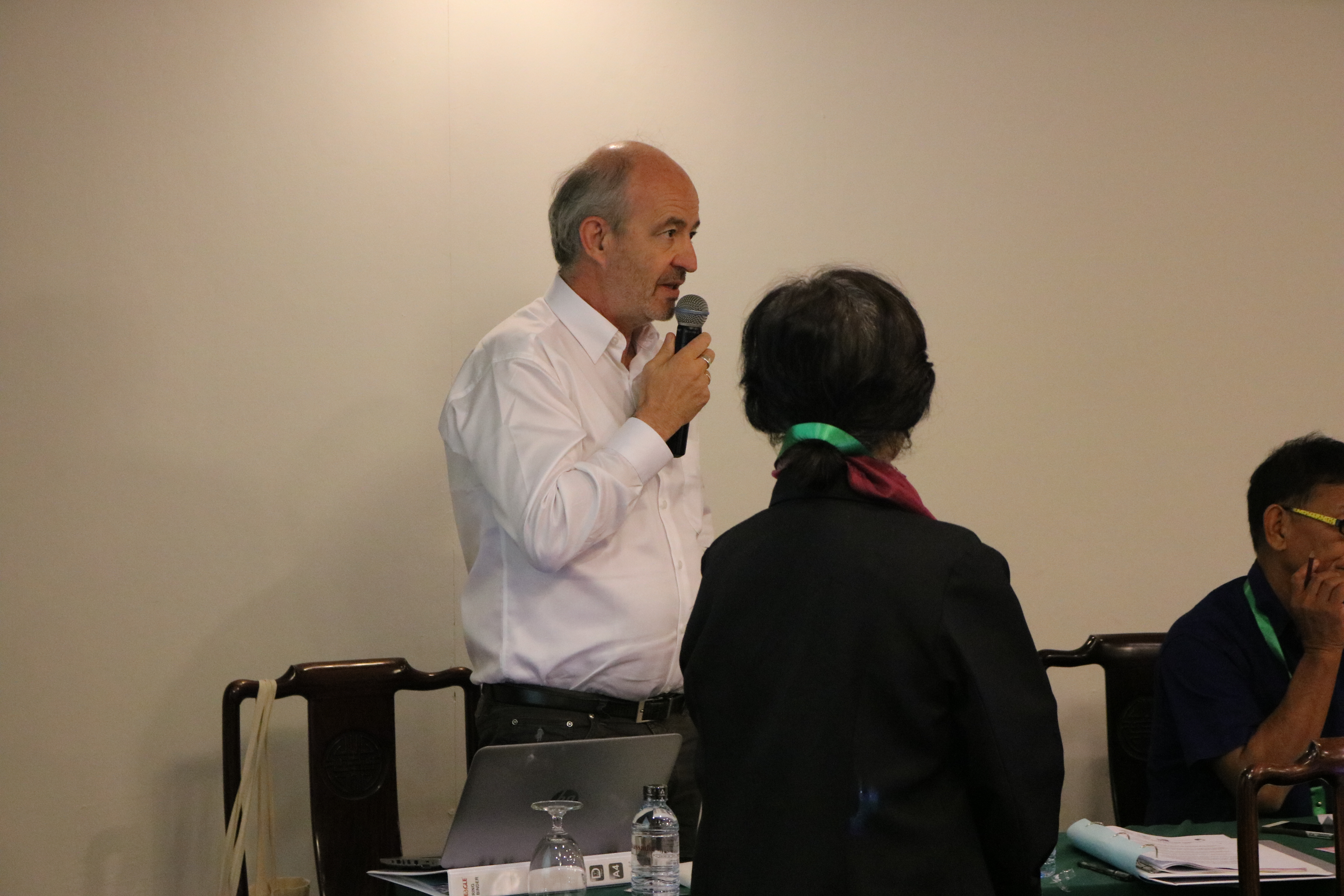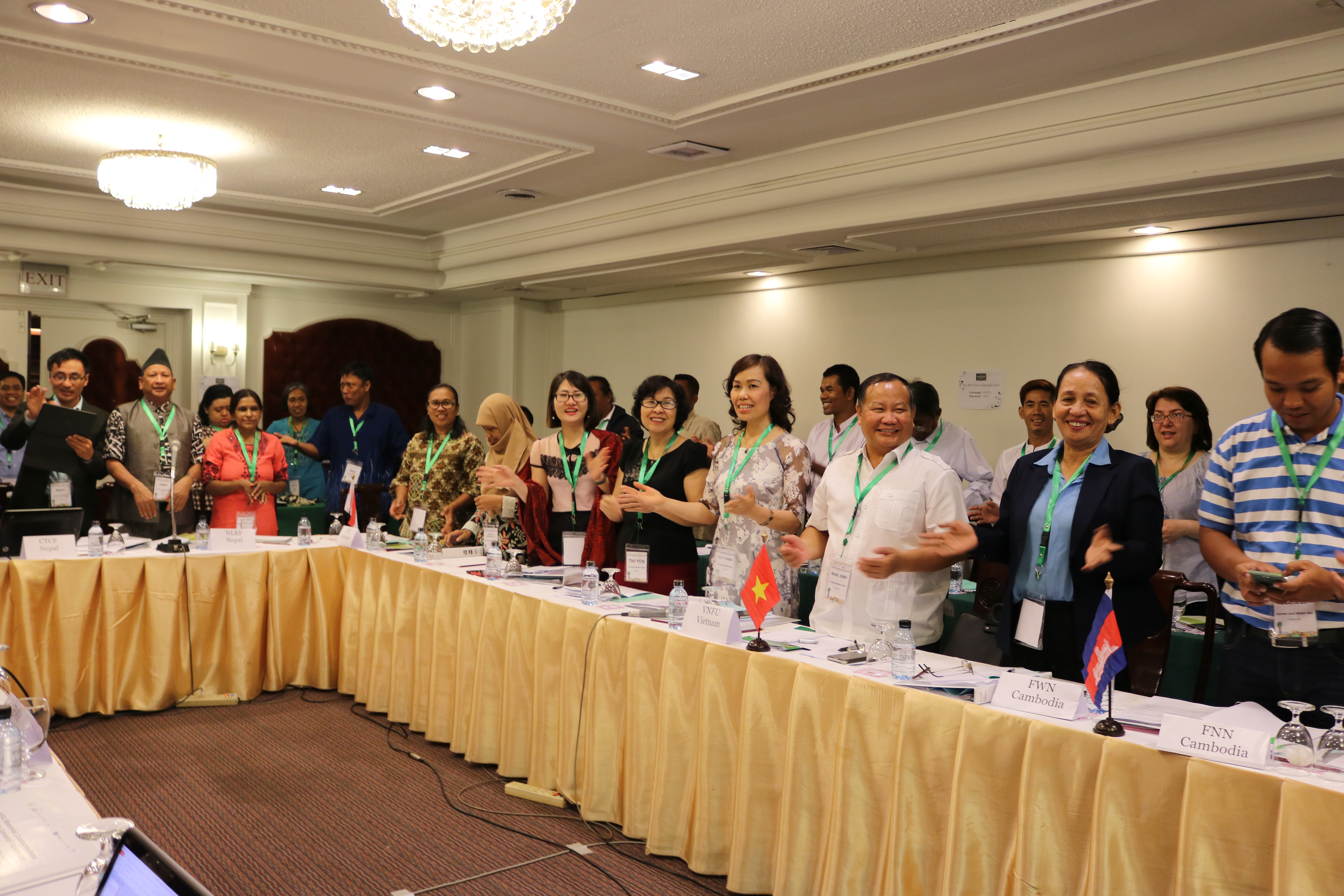Strengthening WAW’s partnership with the Asian Farmers Association (AFA)

On 24 May 2018, a one-day workshop on the production of data and knowledge on family farms was held in Bangkok, Thailand, bringing together farmers’ leaders from 17 national platforms in Asia. The workshop was organized by the Asian Farmers Association (AFA), together with World Agriculture Watch (WAW), Collectif Strategies Alimentaires (CSA) and AgriCord, to coincide with the AFA General Assembly.
The event saw countries present on various aspects of national data, information and monitoring systems:
- Pakisama of the Philippines spoke on the need to define and harmonize indicators to monitor the transition to organic farming and agroecology.
- The LAO Farmers Network presented on the use of Facebook as a tool to enhance communication among its members and to promote a new image of family farmers to the rest of society in the Lao People’s Democratic Republic;
- The Self-Employed Women’s Association (SEWA) of India shared its experience of digital banking to support women’s initiatives;
- The Central Tea Cooperative Federation of Nepal shared information on the monitoring system of its members’ affiliate cooperatives; and
- The Viet Nam National Farmers Union presented on its current information-system project, which aims to document the profiles of 10 million family farmer members.
Other presentations focusing on data issues to inform policymaking included the potential joint development of land matrices and land observatories with the International Land Coalition (ILC) and Burundi’s experience of developing its own information system with the Confédération des Associations des Producteurs Agricoles pour le Développement (CAPAD), supported by the Collectif Stratégies Alimentaires (CSA). WAW presented its framework initiative to characterize farm types from family farms to large industrial farms, illustrating it with a case study on Thailand’s rubber farms.


Discussions were wide-ranging and there were numerous questions from participants on:
- how to mobilize information systems to support family farmers;
- how to prioritize the information to be gathered;
- what a cost-benefit analysis of such systems would show;
- the point of differentiating family farms and family business farms;
- the need to harmonize without standardizing and the linkages between local and more global databases on family farming;
- how information systems could be mobilized to help with marketing;
- how to deal with commercial and food crops;
- what criteria to use for the classification of farms; and
- whether the WAW framework could be used to monitor the effects of SEWA support.
Among the proposed actions for the future is the establishment of partnerships for common projects that respond to farmers’ needs and provide relevant information to make family farms more visible at a global level. Projects with a regional perspective on climate change are under development with various partners, capitalizing on opportunities made possible by the Green Climate Fund.

